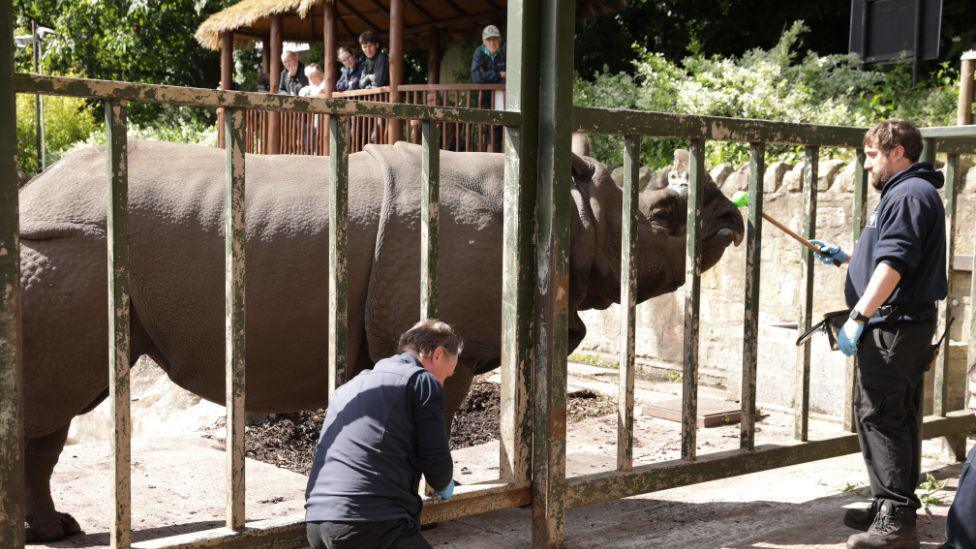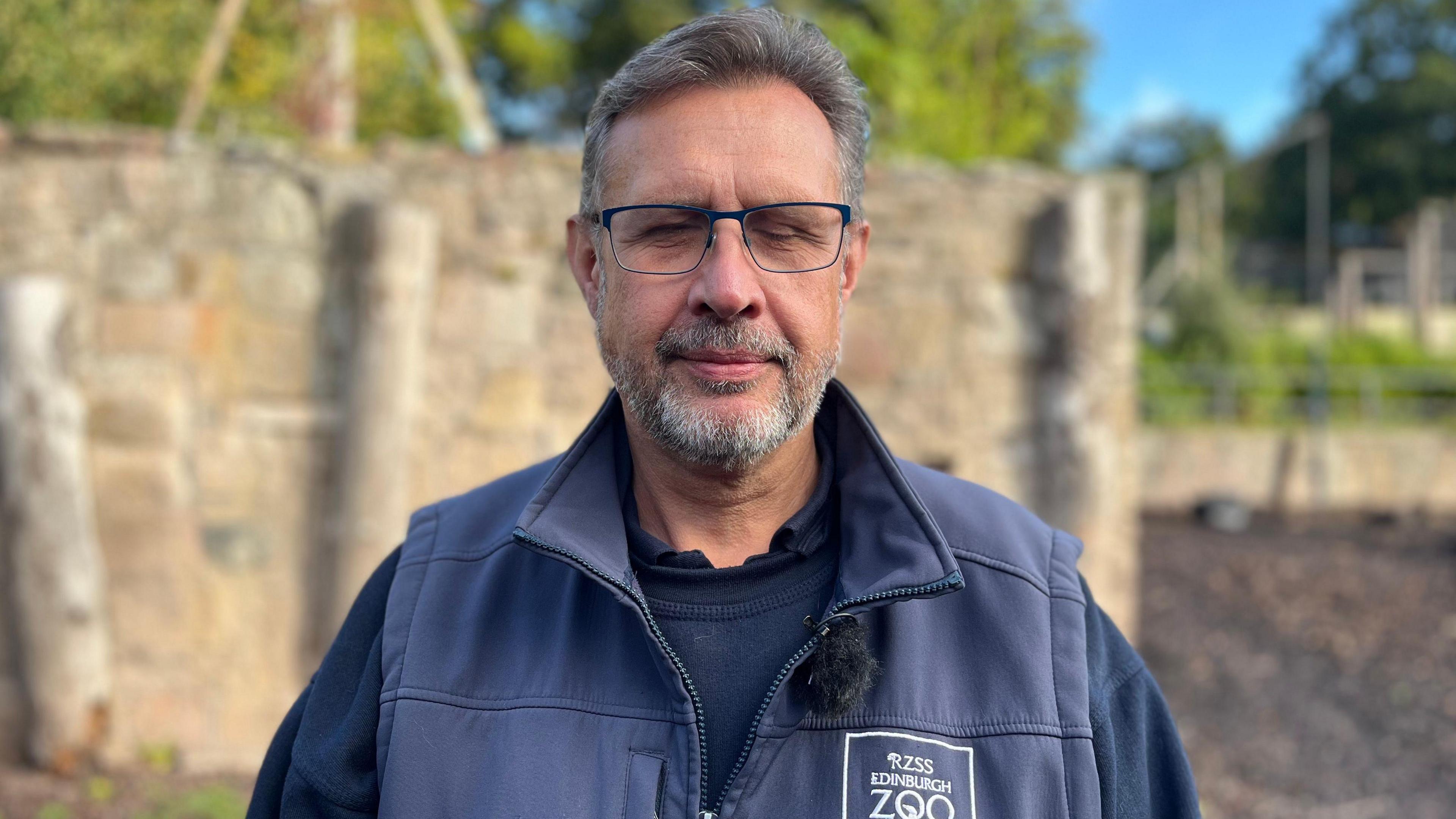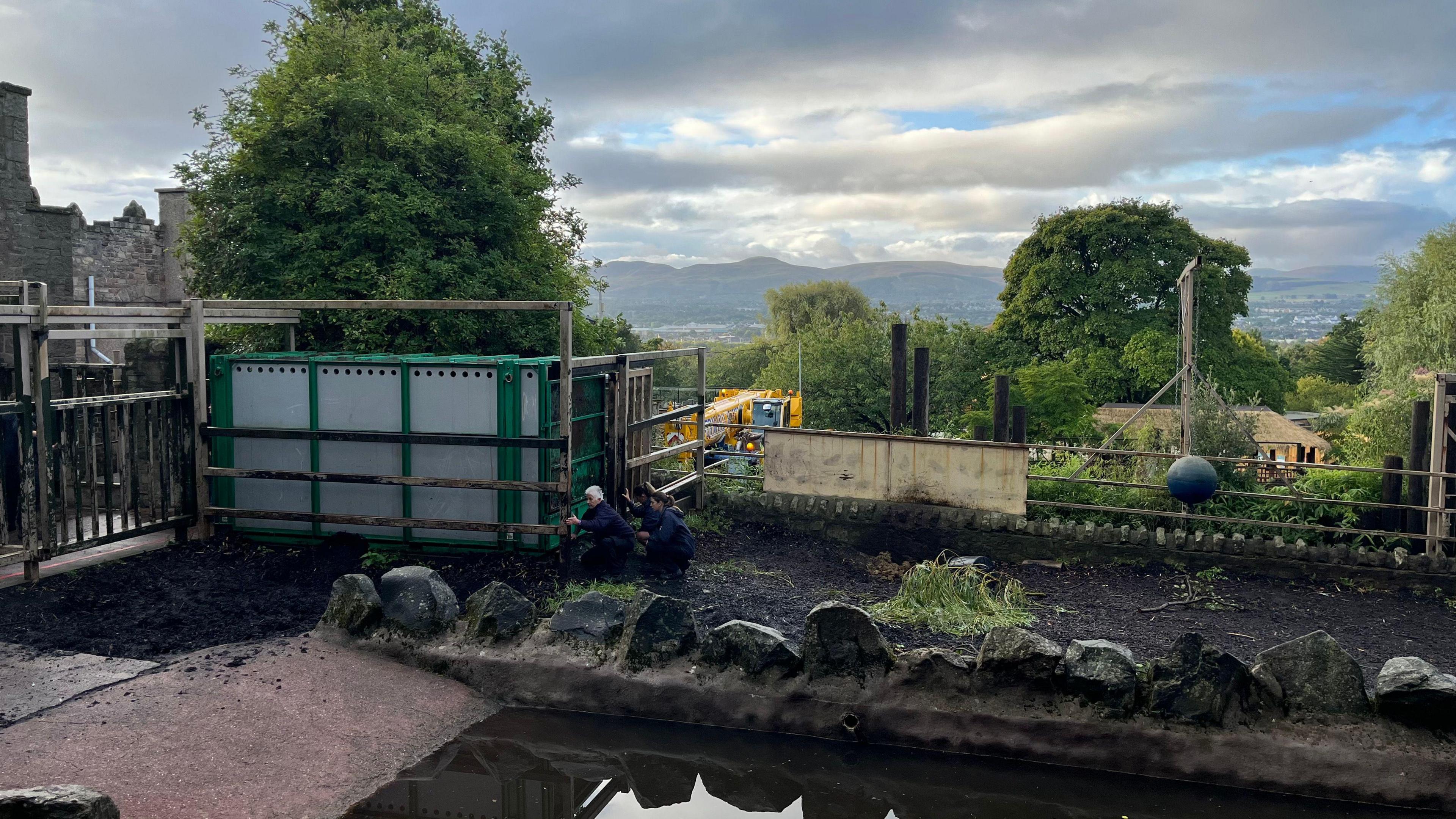Edinburgh Zoo warns of problems importing rhinos and elephants

Qabid, the Indian one-horned rhino, was moved to Eindhoven from Edinburgh earlier this month as part of a breeding programme
- Published
A rhino which moved from Scotland to the Netherlands is at the centre of a row over red tape.
Qabid, the Indian one-horned rhino, was able to leave Edinburgh Zoo for Eindhoven as part of a breeding programme.
But the attraction said controls imposed by the department of environment, food and rural affairs (Defra) to curb the spread of disease mean a replacement pair may be delayed in arriving.
The Royal Zoological Society of Scotland (RZSS) has written to Defra to warn the current post-Brexit administration mean it is now "practically impossible" to import hooved animals into the UK.
The World Wildlife Fund (WWF) lists the Indian one-horned rhino as "vulnerable" with about 4,000 of the animals left in the wild.
Seven-year-old Qabid, who was Edinburgh Zoo's only rhino, will join Eindhoven Zoo's sole female at the facility.
Would you spend £2,000 to feed a tiger at the zoo?
- Published17 January
Five cases of bluetongue identified in county
- Published24 September
Restrictions put in place by Defra and the Animal and Plant Health Agency (APHA) to prevent hooved animals from contracting the bluetongue virus mean any such animals coming into the country are subjected to a mandatory 30-day quarantine in a "vector protected" facility.
However, in a letter to the new secretary of state for environment, food and rural affairs, Emma Reynolds, RZSS said they had received "no clarification" on what a vector-protected facility was.
They urged Defra to revise the legislation and introduce a vaccination arrangement for zoos and confined establishments, which would make it easier to bring animals into the country.
The letter, seen by the BBC, also stated zoos and aquariums had "only been able to transfer about a fifth" of the number of animals between the UK and EU compared with pre-Brexit levels.
It added the current quarantine restrictions were "ill-defined and impractical" and risked creating "a backlog of animals unable to move across the continent".
It said: "If left unresolved, this situation could also lead to the loss of some of the world's rarest and most charismatic animals from the UK."
What is bluetongue virus?
Bluetongue (BTV-3) is a virus transmitted by midge or fly bites which affects hooved animals such as cows, sheep and ungulates.
Those include rhinos, elephants and giraffes.
Five cases of the disease were identified at a farm in Shropshire last week.
It poses no threat to food safety or human health but can be fatal for livestock.
About 60 cases, all in England, have been identified in the UK since July.

RZSS chief executive David Field said there had been a huge incease in paperwork needed to transfer animals to the UK from the EU
RZSS chief executive David Field said biosecurity had not changed post-Brexit, but the level of paperwork required to be completed by zoos had.
He said: "It's administration. It's about having the right border authorities there to check the paperwork. This all changed overnight. The diseases haven't changed.
"The issues haven't changed. The bio-security in good zoos hasn't changed, what has changed is the paperwork.
"What we need is just the Defra authorities to listen to us, to respond to our reasonable requests that the regulations that are in place need slightly adjusting to allow responsible zoos to continue with their hugely important work."

Edinburgh Zoo is hopeful of bringing in two new juvenile rhinos from Ireland and Hungary to fill the currently empty enclosure
The zoo is going through the process of bringing in one juvenile rhino from Ireland, while they are hopeful of another arriving from Hungary - but warns this may take some time.
On the day he was loaded into his crate Qabid's keeper, Jonny Appleyard, told BBC Scotland News the animal was a "massive character" and it was a day of "mixed feelings."
"The fact that he's going off to join a female and be an active part of the breeding programme just makes us happy," he said.
"It's also excitement because we now get to play the next part in our role within the institution, in bringing in another rhino that we can help develop."
A spokesperson for Defra said: "Our zoos and aquariums are world-leading, supporting both vital conservation efforts and local economies.
"We expect the upcoming Sanitary and Phytosanitary agreement with the EU to ease burdens on our zoos and aquariums."